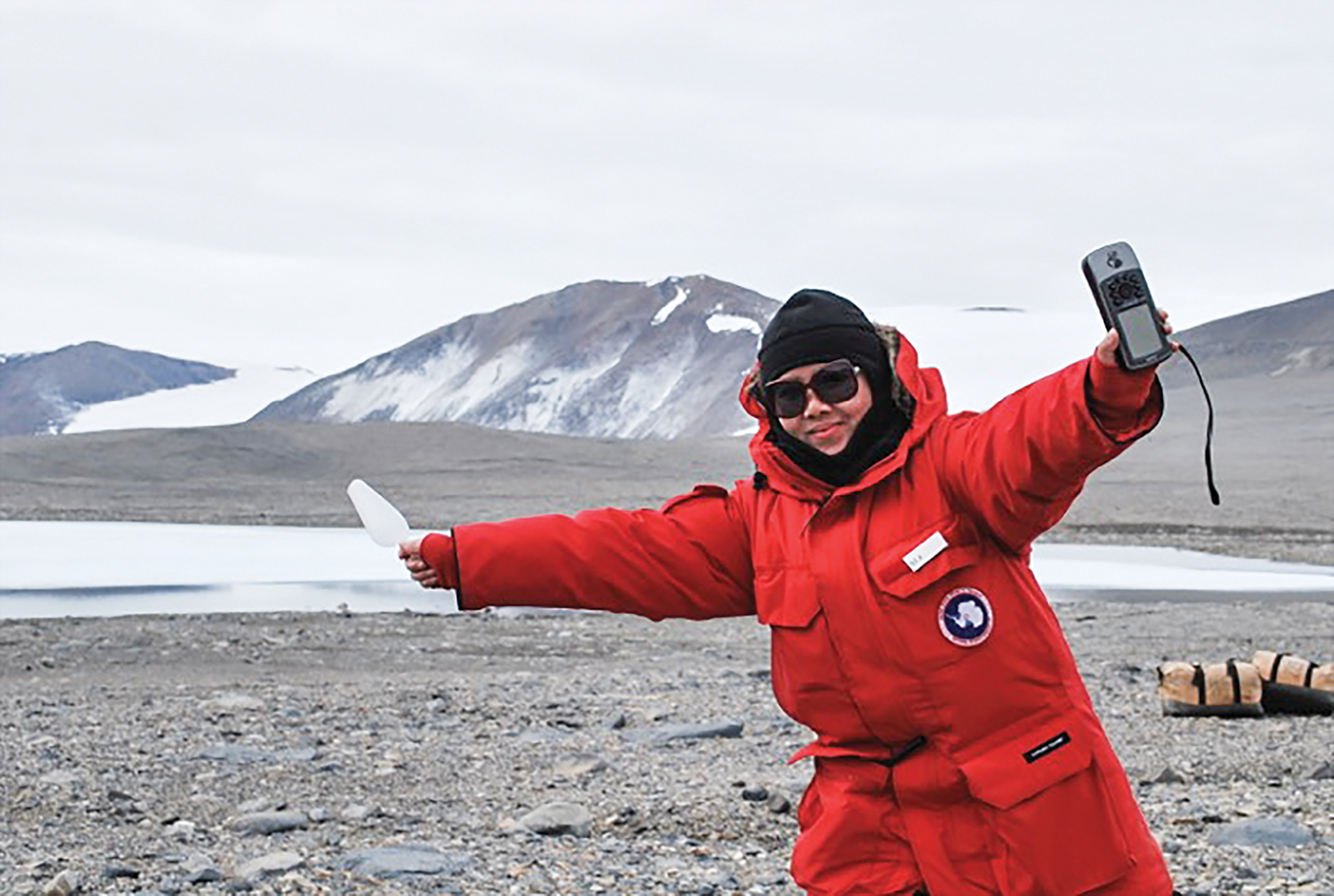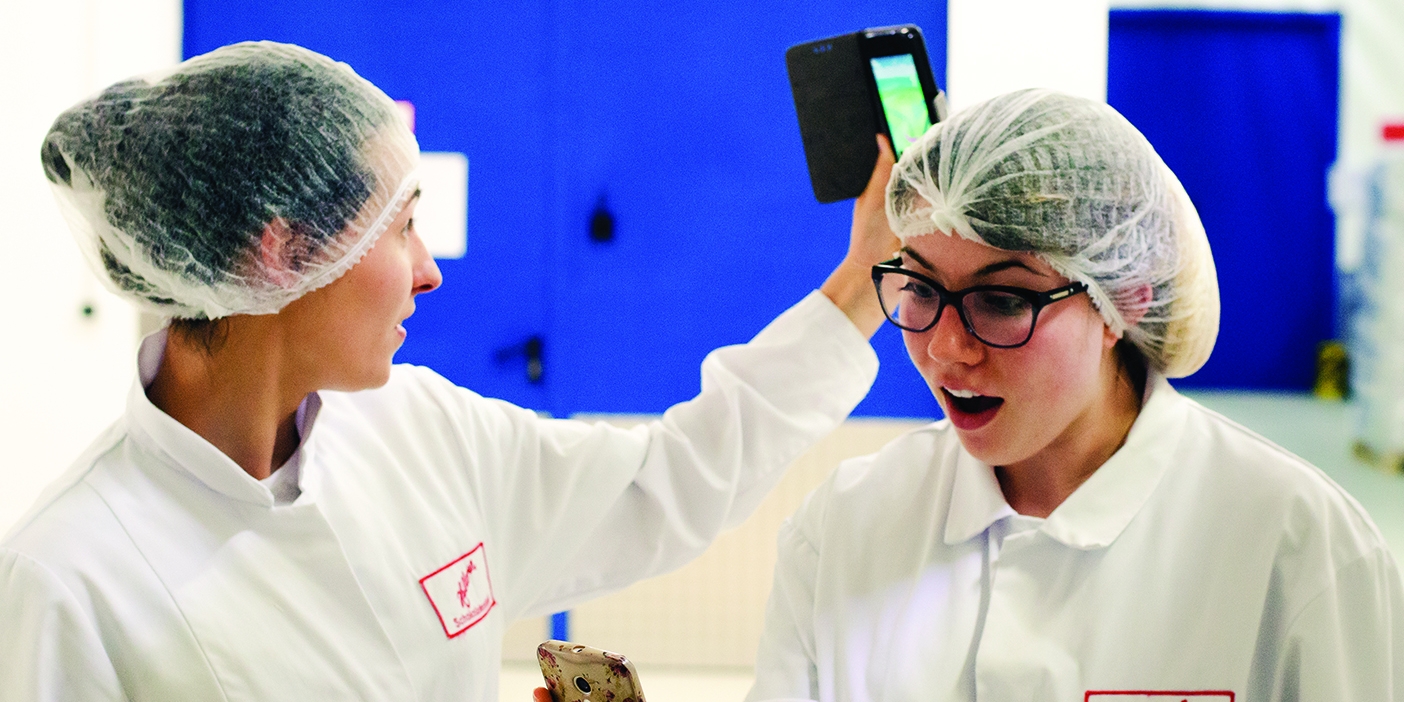President Kevin J Worthen announced a new “Inspiring Learning” priority at BYU—an emphasis on experiential learning. We searched high and low for examples of this kind of learning taking place already at BYU. The following is one of eight. Find the full feature here.
Lab work can be tedious. “Washing samples in the sink makes me feel like I am doing the dishes at home,” says biology grad student Xia “Summer” Xue (’18), who studies Antarctic nematode worms and other hardy microscopic organisms with biology professor Byron J. Adams (BS ’93). “I was thinking it was just my PhD project, just a path I pursue for my degree,” says Xue.

Xue’s outlook changed dramatically during a recent trip to do field work in the southernmost continent. “The world is so big,” she says. “The farther you go, you feel like you know nothing.” After a tough week of travel, she was “totally shocked” by Antarctica’s alien landscape, a striking contrast to her smog-enshrouded hometown of Zhengzhou, China. “It is ice and white and the sky is so blue and the UV light is really strong,” she says.
No cities, plants, or land animals. At 20 degrees below freezing, there were no smells. The only sound was the gusting wind. “What can possibly live here?” she wondered.
But, working with Adams in the McMurdo Dry Valleys, she discovered that life was all around. “Every time I just dig the soil with my scoop, I am thinking, ‘How many [living] things can I get from this soil?’”
In the field the job of collecting samples and observing creatures under the microscope became fun, even a passion for Xue. “Every time we find a tardigrade [or water bear], . . . they look like they are dancing there and saying hi to you—and they make you feel happy.”
These different resilient creatures survive freezing conditions by either drying themselves out or generating internal antifreeze—a tenacity that inspires Xue.
Xue says understanding how Antarctic worms survive harsh conditions can impact our response to global climatic change—and even makes cleaning lab equipment worth it. She adds: “I never thought about how important what I am working on is until I had the opportunity to see Antarctica with my own eyes.”
Find the full story on President Worthen’s “Inspiring Learning” priority here.












